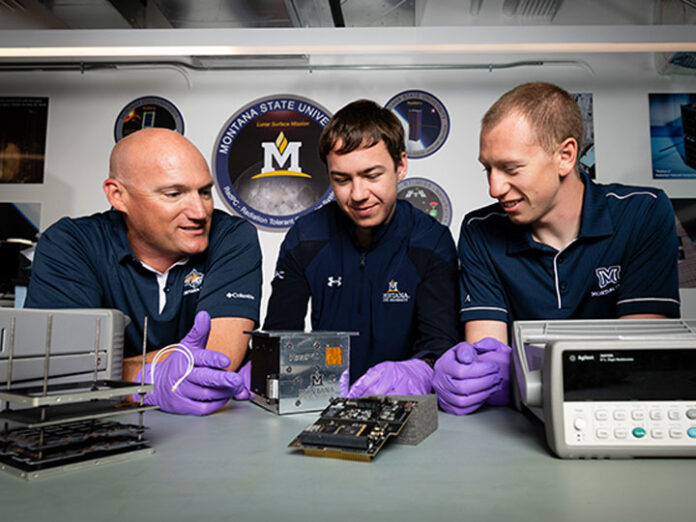In a vote of 54 to 43, the Montana House of Representatives voted in favor of a measure Friday that would prohibit the TikTok social media app that has ties to the Chinese government from operating within the state.
The passage of the bill, known as SB419, comes amid growing concern from several lawmakers and voters that the app may be used by the Chinese to spy on certain aspects of American life.
There’s been quite a bit of talk about the legislation here in Montana with most saying that banning TikTok in the state would be next near to impossible.
Geofencing “is” a thing, and I think (short of the Federal government) that California was the first to ever use the technology.
What most Montanan’s don’t seem to realize is that the internet as a whole has been carved up into little bits and pieces for years. Most don’t know that what they see on the internet is only a mere fraction of the total of what the internet really is. You only get to see the parts of the internet that your ISP will let you see. The rest of the 90% of the internet goes unseen because of things like state and federal laws, various sorts of regulatory measures, bandwidth restrictions and limitations, and so on and so forth.
It’s common practice, even in the United States, to disallow various portions and pieces of the internet to be seen around the world. This sort of thing isn’t new.
The time to worry about your first amendment rights is long gone I’m afraid. People worry about their first amendment rights in 2023 when they should have been worrying about it clear back in 2001. This is how far down the rabbit hole we’ve gone and folks don’t even realize it.
For those who seem to think that they’ve got the world of the internet at their fingertips, they should think again, because they don’t — especially if they’re using their phone.
Though some may argue the point, it’s well known that you only see a fraction of the internet on your phone that might otherwise be available on a PC. Phones are very tightly restricted for many different corporate reasons. PC’s on the other hand, are much more capable of skirting the rules and are much more highly configurable than phones are.
If you were to actually read SB409, you would notice that ISP’s are written out of the equation. The bill itself only seems to target the sources for the app of TikTok.
The writes for access falls squarely on the likes of those who control the app stores, namely iOS and Android as far as I can see, and since big corp is really good at writing much more complicated rules for internet access, writing out access to phone users in Montana with regard to TikTok would be a no-brainer for them.
TikTok currently, at both the state and the federal level, and around the world, is one of those things that are, by law, being relegated to the Deep Web. The Deep Web is all of the other 90% of the internet that you don’t see already either via phone, or PC.
Deep web sites can be accessed by a direct URL or IP address, but may require entering a password or other security information to access actual content. Such sites have uses such as web mail, online banking, cloud storage, restricted-access social-media pages and profiles, some web forums and code language that require registration for viewing content. It also includes paywalled services such as video on demand and some online magazines and newspapers. — https://en.wikipedia.org/wiki/Deep_web
Deep Web should not be confused with the Dark Web.
… and at the federal level from March 2023?
Senators Introduce Bipartisan Bill to Tackle National Security Threats from Foreign Tech
” — Today, U.S. Sens. Mark R. Warner (D-VA), Chairman of the Senate Select Committee on Intelligence, and John Thune (R-SD), ranking member of the Commerce Committee’s Subcommittee on Communications, Media and Broadband, led a group of 12 bipartisan senators to introduce the Restricting the Emergence of Security Threats that Risk Information and Communications Technology (RESTRICT) Act, legislation that will comprehensively address the ongoing threat posed by technology from foreign adversaries by better empowering the Department of Commerce to review, prevent, and mitigate information communications and technology transactions that pose undue risk to our national security.”” — https://www.warner.senate.gov/public/index.cfm/pressreleases?ID=A60981F5-0DB9-45E9-BF96-150C22E45B61
The ACLU I’m afraid, is going to have it’s hands full as this whole lets ban TikTok thing gets rolling. Trying to protect rights that have long since been undermined seems like a bit of a stretch to me. But sure, the ACLU can knock themselves out with this one as far as I’m concerned. Seems that trying to stay relevant is the name of the game these days and the ACLU with their arm out and their leg up continuously is no exception.
Over the years, at least since clear back in 2001, I’ve seen things get removed or otherwise banned over and over again and no one spoke up about it or so much as even given it all a second thought. Now we have the TikTok deal and everyone seems to be losing their ever loving minds over it. TikTok, not too unlike all of the keyloggers and adware that’s rolling around out there, is just one of those things that someone recognized as a threat.
Is TikTok being used to spy on people? The answer might depend on who you ask on any given day.
As far as I’m concerned, when it comes to the invasion of privacy, Google/Facebook tops the list. But that’s just me of course.
Once you discover the in’s and the out’s of how all of this internet stuff works, you just might be somewhat surprised to learn that your other social media accounts, your web browser, and your phones, are doing the exact same things that TikTok is being accused of doing, but because TikTok is being used by the Chinese government to spy on people suddenly that makes it bad.
 Spying is spying regardless of what government does it … pot calling kettle black doesn’t really impress me much in this day and age of the internet.
Spying is spying regardless of what government does it … pot calling kettle black doesn’t really impress me much in this day and age of the internet.
As an aside, I’m just willing to bet dollars to donuts that our government is doing the same things with the Chinese users on Facebook, that the Chinese government is doing with the American users on TikTok. China has a law that says it’s companies have to turn over the data collected on it’s networks … in the United States we don’t have laws like that because our social media companies just hand the data over voluntarily.
Some of our legislators may not be able to give technical definitions of just how SB419 will work, but rest assured, not only will it work, but it will be just as enforceable as well. Current technologies for enforcement have been around for years. Big tech already knows what this is all about, and will oblige just like they’ve been doing with regard to any other government regulation, mandate, or law that’s been handed down over the years.
Thanks for the read
Happy Trails









